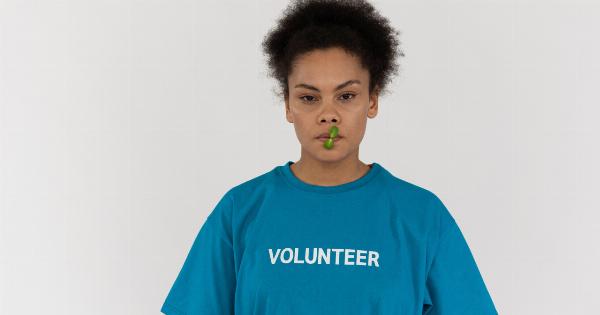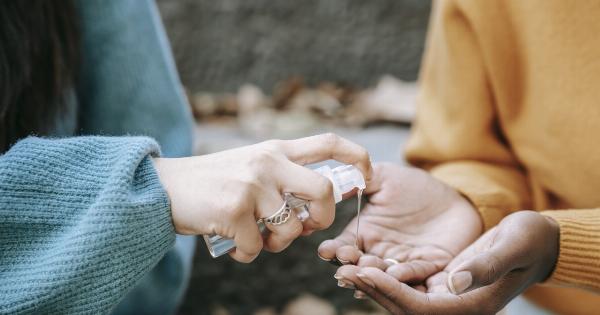Sexuality is an integral part of the human experience, but unfortunately, the way society perceives and judges female sexuality is often unjust and unequal.
For centuries, women have faced discrimination, shame, and double standards when it comes to expressing their sexual desires and preferences. This article aims to shed light on the unfair attitudes toward female sexuality, explore the underlying reasons for this inequality, and discuss the consequences it has on women’s lives.
1. Historical Suppression
Throughout history, societies around the world have attempted to control and repress female sexuality.
Traditional gender roles have perpetuated the idea that women should be passive, chaste, and subordinate, while men are expected to be assertive and sexually active. This dichotomy has created a culture that silences women’s sexual needs and desires. Women who defy these norms or express their sexuality have often been labeled as promiscuous, immoral, or even “ruined.”.
2. Double Standards
Double standards are pervasive when it comes to female sexuality. While men may be praised for their sexual conquests, women are frequently judged and shamed for the same behavior.
This unfair discrepancy stems from deeply ingrained societal beliefs that place a higher value on male sexual prowess while emphasizing female modesty and purity. As a result, women often face harsh consequences, such as being labeled as sluts or facing reputational damage, whereas men may even be celebrated for their sexual exploits.
3. Objectification and Male Gaze
Women’s bodies have long been objectified and commodified, reducing them to objects of male desire rather than individuals with their own sexual agency.
This objectification is perpetuated by media, advertising, and pornography, which often depict women in hyper-sexualized and unrealistic ways. These portrayals not only reinforce traditional gender roles but also create unrealistic expectations for women to attain an unattainable standard of beauty, leading to anxiety, self-esteem issues, and body dysmorphia.
4. Slut-Shaming and Victim-Blaming
When women are open about their sexuality or victims of sexual assault, they often face slut-shaming and victim-blaming.
Society tends to blame women for their own assaults, implying that they somehow provoked it through their behavior or clothing choices. This victim-blaming perpetuates rape culture and creates a hostile environment where women are discouraged from freely expressing their sexuality and seeking justice for any wrongdoings committed against them.
5. Health and Education Disparities
Another area where unfair attitudes toward female sexuality manifest is in health and education disparities. Access to comprehensive sexual education, reproductive healthcare, and contraception options are crucial for anyone, regardless of gender.
However, due to stigma, cultural beliefs, or lack of resources, women often face barriers when seeking essential sexual health services or knowledge. This lack of access not only endangers their wellbeing but also limits their ability to make informed choices about their bodies and sexuality.
6. Empowerment and Sexual Agency
Recognizing and challenging these unfair attitudes is essential to fostering a more inclusive and equal society.
It is crucial to promote sexual empowerment and agency among women, encouraging them to embrace and express their desires without fear of judgment or repercussions. By addressing the root causes of these disparities, such as sexist social norms and gender stereotypes, we can move closer to a society where all individuals, regardless of gender, can freely and openly explore their sexuality.
7. Breaking Taboos and Encouraging Dialogue
Breaking the taboos surrounding female sexuality requires open and honest dialogue about these issues. By initiating conversations that challenge societal norms and encourage empathy, we can educate others and foster a more accepting culture.
It is vital to recognize the diverse experiences and desires of women and create safe spaces where they can freely discuss and explore their sexuality without fear of shame or judgment.
8. Advocacy and Policy Change
Advocacy plays a critical role in bringing about change. Supporting organizations and movements that focus on women’s sexual rights and liberation can help challenge the unfair attitudes toward female sexuality.
Additionally, pushing for policy changes that ensure equal access to sexual education, healthcare, and protection against gender-based violence is crucial in dismantling the existing inequalities.
9. LGBTQ+ and Intersectionality
It is vital to acknowledge that unfair attitudes toward female sexuality intersect with other forms of discrimination, such as race, ethnicity, and sexual orientation.
LGBTQ+ women, women of color, and women with disabilities often face multiple layers of oppression, further exacerbating the injustices they experience. It is crucial for society to address these intersecting inequalities to create a truly inclusive and equitable environment for all women.
10. The Path to Equality
True equality in the realm of female sexuality can only be achieved by challenging the patriarchal norms ingrained in society.
By unlearning and dismantling these harmful ideologies, we can create space for women to define and embrace their sexuality on their own terms. It is essential to support and uplift voices that challenge unfair attitudes, empower women in their sexual agency, and advocate for policies that protect and promote gender equality.





























